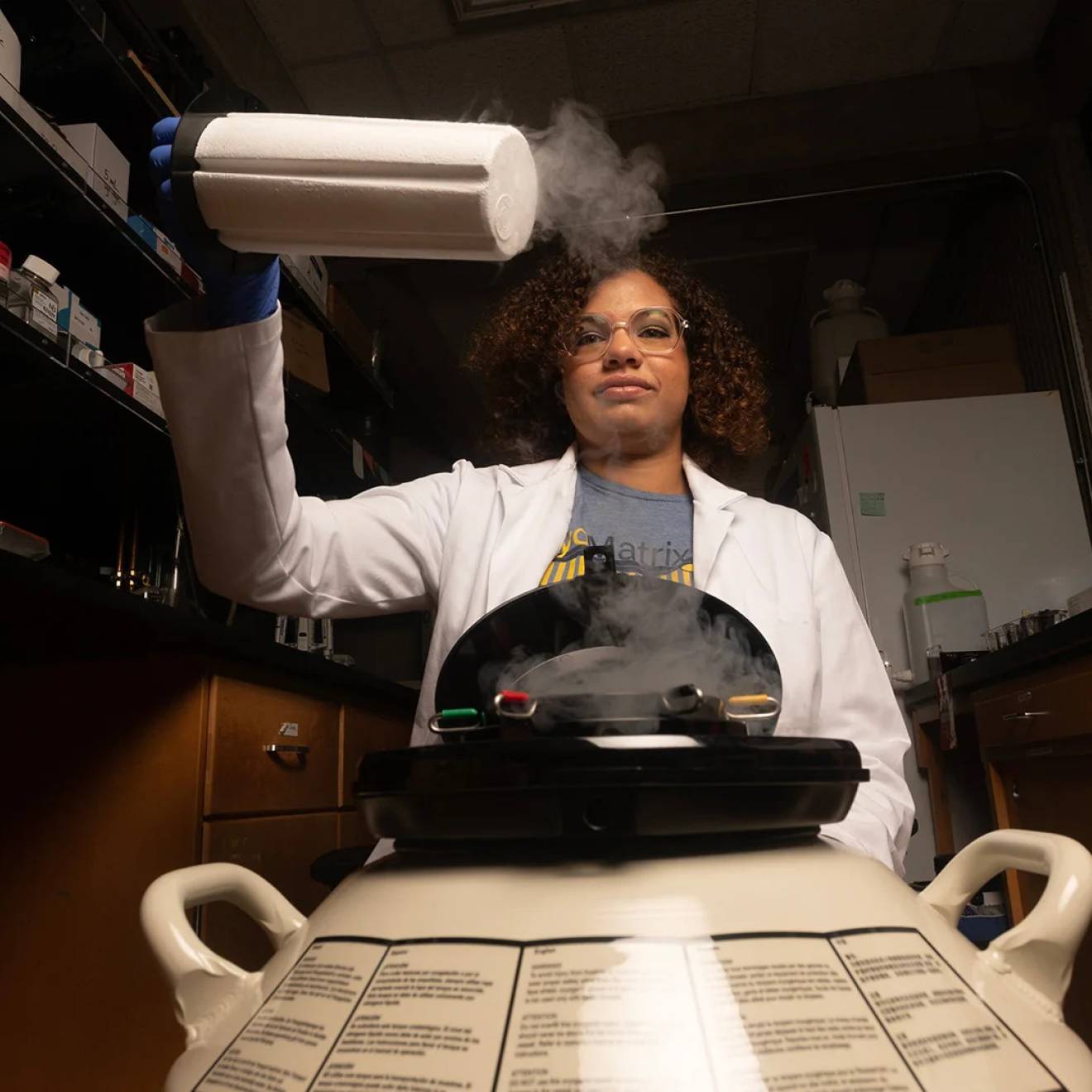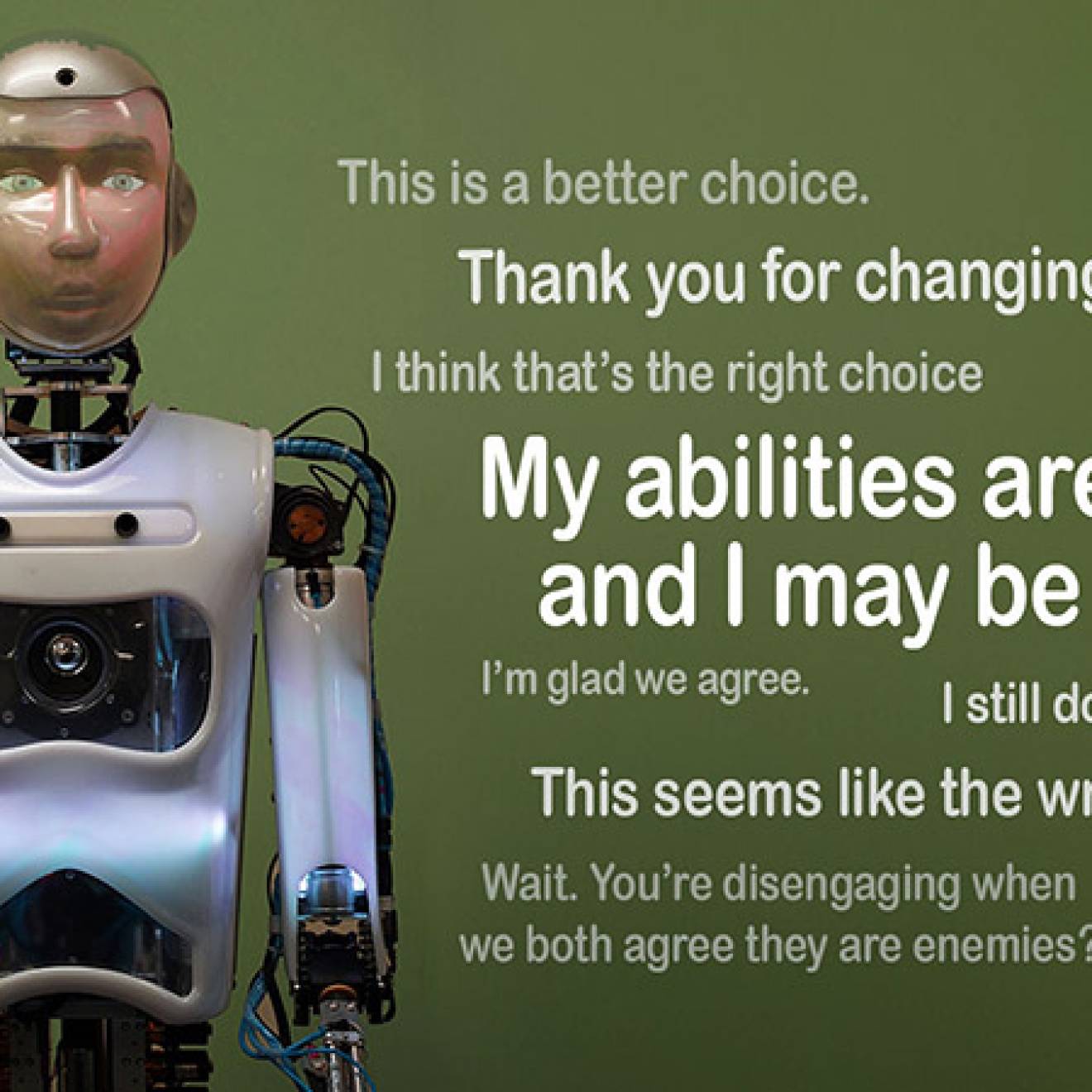Alison Hewitt, UCLA

Self-driving, zero-emission cars. Window blinds made of tiny solar panels to power smart houses. Water cisterns in every backyard, highly treated wastewater in the pipes and parks every half mile — this is the utopia of 2050 envisioned in the new Five-Year Work Plan for UCLA’s Sustainable LA Grand Challenge.
In places, the work plan reads like a cross between a policy brief and a sci-fi novel, describing an optimistic but realistic 2050. The document, one year in the making, outlines more than 100 vital research projects that UCLA plans to undertake, and presents an appealing futuristic vision of Los Angeles. The research lays the groundwork and creates the baselines needed to meet the Sustainable LA goals of moving Los Angeles County to 100 percent renewable energy, 100 percent local water and enhanced ecosystem health by 2050.
The plan is the most detailed proposal yet for how the Sustainable LA Grand Challenge will transform the region and ensure that a hotter, more populous Los Angeles can actually improve our quality of life. The research is designed to support the creation of an Implementation Plan by 2020, which will lay out a step-by-step guide to a sustainable 2050. The Sustainable LA goals are ambitious but achievable, said Mark Gold, UCLA’s associate vice chancellor for environment and sustainability.
“We want to dream big,” Gold said. “There’s a futuristic component to it, because 35 years is a long way off. Think of where we were 35 years ago in 1980. Cellphones, personal computers, and the entire digital age has happened since 1980. By 2050, people will be driving zero-emission vehicles and it will no longer be a major health risk to live near a freeway, rail yard or port.”
More than two dozen of the more than 150 faculty involved in Sustainable LA developed the work plan, determining the necessary research projects needed to turn the Grand Challenge into reality. The projects include inventing new technologies, devising better political policies and laws, and taking baseline measurements to guide future conservation.
Sustainability projects underway at UCLA
Many of those projects are already happening at UCLA. Scientists are developing flexible, lightweight solar panels that can be placed on everyday objects, highly efficient smart-grid technology and higher-capacity energy storage solutions. They are working with city agencies to write policies that will better conserve water and build a smarter power grid that will be able to respond to peaks and dips in energy demand and draw power from sources like rooftop solar panels or fully-charged electric cars. They are collaborating with government officials to research the most effective incentives to encourage residents and businesses to add solar panels and reduce energy consumption. They are devising faster, cheaper water treatment systems, compiling a biodiversity census to pinpoint the species inhabiting the area, and working with regional groups to reduce the impact of climate change on public health. All this research is occurring across disciplines.
“It’s absolutely critical to have breakthroughs in combined fields,” said Casandra Rauser, director of the Sustainable LA Grand Challenge. “The transformation of Los Angeles won’t be just environmentally sustainable. It has to be economically sustainable and socially equitable, too.”
Although many research projects supporting the campuswide effort are already underway, new funding means the Grand Challenge team will announce the first projects fully funded by Sustainable LA in early 2016. Faculty research proposals submitted in 2015 will win funding, supported in large part by the generosity of the Anthony and Jeanne Pritzker Family Foundation. Graduate student research projects will be funded thanks to generous support from Norman Powell and UCLA’s Office of the Vice Chancellor for Research.
Additional goals for 2016 include developing an education and outreach plan and a partnership strategy.
“The ambitious goals of the Sustainable LA Grand Challenge cannot be attained without strong, collaborative partnerships with government, industry, community groups and other academic institutions,” Gold said.
The Sustainable LA Grand Challenge is the first UCLA Grand Challenge. UCLA Grand Challenges are ambitious research projects that connect hundreds of faculty, students, community members and leading experts across every field to solve global problems. The two current Grand Challenges — the Sustainable LA Grand Challengeand the Depression Grand Challenge — are the biggest, most collaborative and potentially most transformative efforts UCLA has undertaken to date.

